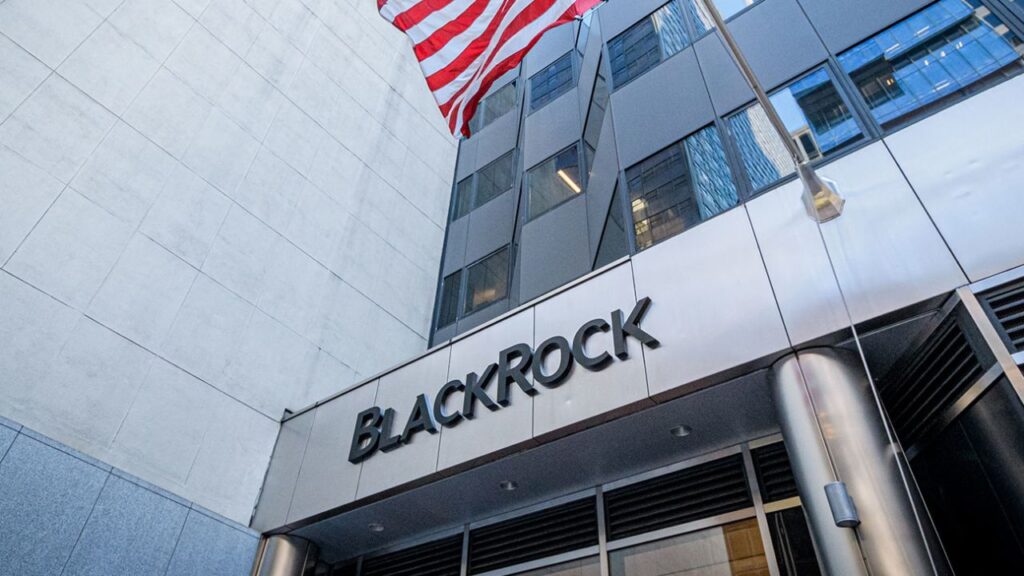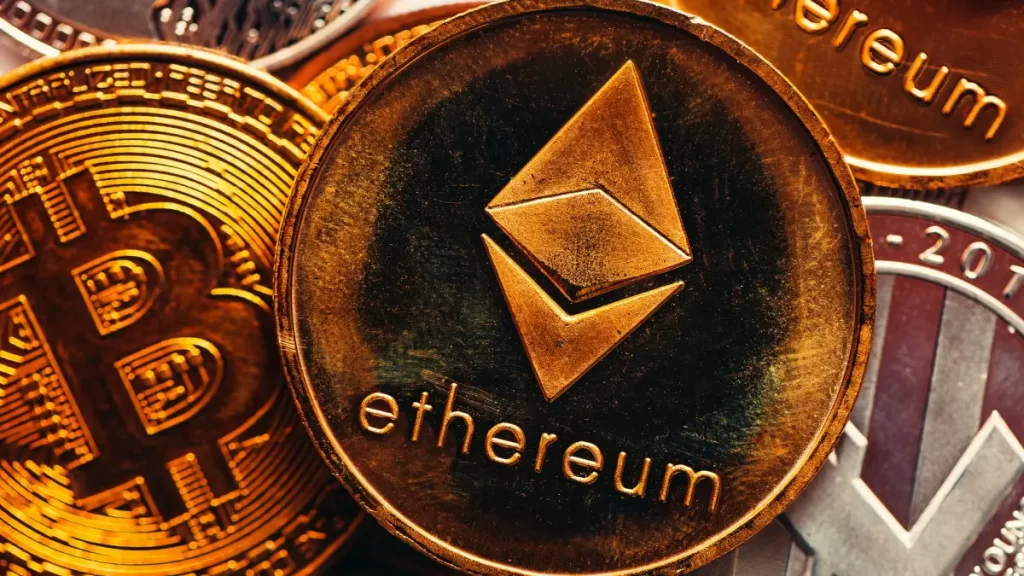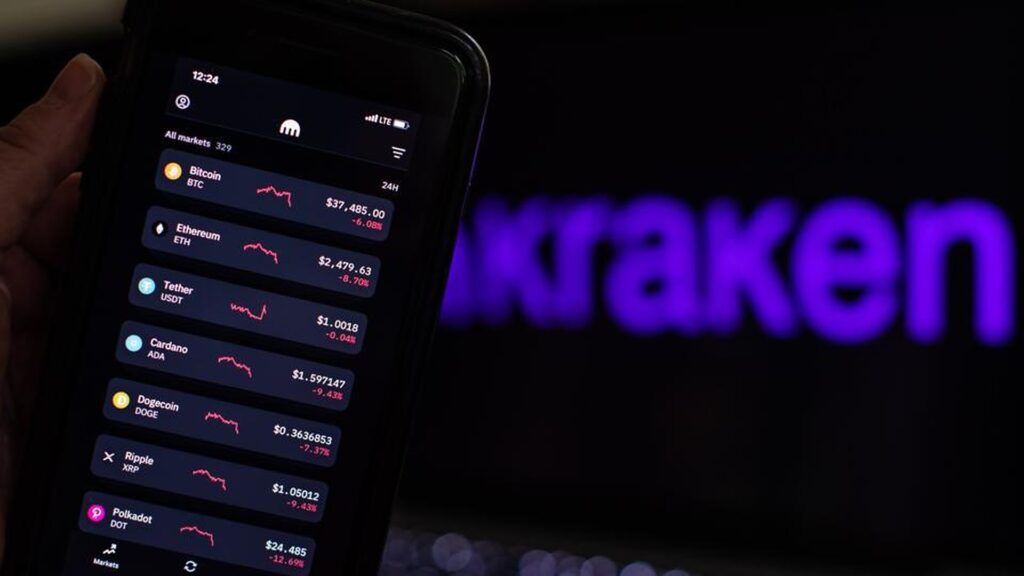New regulations from South Korea’s financial security regulator, aimed at protecting users buying and storing crypto assets with virtual asset service providers (VASPs), came into effect on July 19.
Named the “Virtual Asset User Protection Act,” the law requires VASPs to implement several measures to safeguard users’ crypto, as outlined in a July 17 statement from South Korea’s Financial Services Commission (FSC).
Key mandates include obtaining insurance against hacking and malicious attacks on user assets, keeping customer crypto assets separate from the exchange’s holdings, and ensuring customer deposits are securely held in banks.
Additionally, VASPs must conduct due diligence to prevent money laundering and report suspicious transactions to the regulator.
“VASPs should maintain a surveillance system for suspicious transactions at all times and immediately report suspicious trading activities to the Financial Supervisory Service (FSS),” the statement emphasized.
READ MORE: CrowdStrike CEO Clarifies Downtime Cause: No Security Breach, Stock Drops 15%
“After investigations by the financial and investigative authorities, those found guilty of unfair trading activities may face criminal punishment or penalty surcharge,” it further noted.
Concerns have been raised by South Korean crypto exchanges regarding potential mass delisting of tokens due to the new regulations.
On July 3, Cointelegraph reported that 20 South Korean crypto exchanges plan to review 1,333 cryptocurrencies over the next six months as part of these laws.
According to the Digital Asset Exchange Alliance (DAXA), “the possibility of mass delisting occurring all at once is unlikely.”
In parallel, South Korea’s ruling party, the People’s Power Party, proposed delaying the implementation of the country’s tax on crypto trading profits.
On July 12, the party submitted this proposal, citing deteriorating sentiment towards crypto assets.
They argued that swiftly imposing taxes on virtual assets is “not advisable at this time.”
To submit a crypto press release (PR), send an email to sales@cryptointelligence.co.uk.
The concept of the U.S. government maintaining a Bitcoin strategic reserve could boost its price, but it is unlikely to materialize soon, says Ari Paul, CIO at BlockTower Capital.
“I’d lay 10:1 against the US adding Bitcoin as a strategic reserve in the next 4 years,” Paul noted in a July 18 X post.
He added, “Plausible to me that Trump might say it, which would be very bullish for the BTC medium time frame,” amidst traders’ concerns over Bitcoin struggling to reclaim the $65,000 price level as support.
Paul elaborated that while a future president might declare they won’t sell any of the government’s Bitcoin holdings, this doesn’t equate to establishing a “Bitcoin Strategic Reserve.”
He questioned what would qualify as a declaration, suggesting it could range from an off-the-cuff statement by Trump to an executive order, highlighting that the U.S. government already confiscates Bitcoin in various scenarios.
A strategic reserve refers to a stockpile of resources held by governments for emergencies. For example, the U.S. maintains the largest supply of emergency crude oil, known as the “Strategic Petroleum Reserve,” to mitigate potential oil supply issues.
READ MORE: CrowdStrike CEO Clarifies Downtime Cause: No Security Breach, Stock Drops 15%
Paul’s remarks come amid social media buzz that former President Donald Trump might announce plans to designate Bitcoin as a strategic reserve if he wins the election.
This speculation is tied to an expected announcement during the Bitcoin 2024 conference in Nashville.
“Getting more and more confirmations that these rumours maybe true. Trump to announce a USA Bitcoin strategic reserve in Nashville,” wrote Simon Dixon, founder of BnkToTheFuture, in a July 18 X post.
“People don’t believe the USA could implement a Bitcoin Strategic Reserve but at this point it is inevitable,” stated Dennis Porter, CEO and co-founder of Satoshi Act Fund, on the same day.
Michael Goldstein, president of the Satoshi Nakamoto Institute, added, “Everyone should have a Bitcoin strategic reserve. You. Your family. Your business. Your city. Your state. Your country. Everyone.”
This follows speculation by entrepreneur Mark Cuban that geopolitical instability and inflationary pressures might propel Bitcoin to become a global reserve asset.
To submit a crypto press release (PR), send an email to sales@cryptointelligence.co.uk.
According to a report by asset manager ARK Invest released on July 18, Bitcoin became oversold in June due to Germany’s government initiating a multibillion-dollar sell-off of 50,000 BTC seized in a 2020 police sting against Movie2k, a streaming platform for pirated content.
This sell-off caused Bitcoin prices to plummet from highs exceeding $70,000 in early June to a low of less than $55,000 during a brief dip in July.
“Based on short-term-holder realized profits/losses and miner outflows, Bitcoin appears oversold,” the report stated.
The report, which focuses on the period through June 30 but includes more recent data, added, “Current levels [of miner outflows] suggest that miners are capitulating, a harbinger of a bullish reversal.”
Another bullish signal identified by ARK is investors’ sustained appetite for BTC exchange-traded funds (ETFs).
The report highlighted that BTC’s sharp sell-off did not trigger a mass exodus from spot BTC ETFs.
By June 30, the drop in BTC’s spot price had overshot the 30-day percent change in BTC ETF flows by 17.3%.
July saw billions of dollars of net inflows into BTC ETFs, with about $1.35 billion entering the funds in the week ending July 15, according to CoinShares.
READ MORE: Kraken Expands Custody Services to UK and Australia, Partners with Tottenham Hotspur
BlackRock’s iShares Bitcoin Trust (IBIT) recorded $107 million in inflows on July 18 after nine straight days of inflows, according to Thomas Fahrer, co-founder of the crypto data platform Apollo.
Despite these positive signals, there are risks to BTC’s continued strong performance from global economic data.
ARK noted that corporate profits are steadily falling as pricing power diminishes, indicating economic weakness.
Bitcoin prices also face potential challenges from the defunct cryptocurrency exchange Mt. Gox’s repayment of approximately $9 billion in BTC to creditors.
However, unlike Germany’s abrupt sell-off, industry analysts believe that creditors may opt to hold onto their BTC, which could soften any potential negative impact on the broader market.
To submit a crypto press release (PR), send an email to sales@cryptointelligence.co.uk.
Asset management firm BlackRock has announced a fee of 0.25% for its spot Ethereum exchange-traded fund (ETF) ahead of its potential launch next week.
BlackRock’s S-1 registration statement, filed on July 17, outlines that the fee will accrue daily at an annualized rate of 0.25% of the fund’s net asset value.
This fee is payable at least every three months in US dollars, in-kind, or a combination of both.
The firm also mentioned it might waive all or part of the fee for certain periods and plans to do so upon the fund’s launch.
BlackRock’s spot Ether ETF will initially trade at a 0.12% fee until either 12 months pass or the fund accumulates $2.5 billion in net assets, whichever occurs first.
This approach mirrors the fee structure of the iShares Bitcoin Trust.
Other firms have also detailed their proposed fees and waiver periods in their S-1 registration forms. Franklin Templeton’s spot Ether ETF will charge the lowest fee at 0.19%.
The Bitwise Ethereum ETF and VanEck Ethereum ETFs are set at 0.20%, while the 21Shares Core Ethereum ETF’s fee is 0.21%.
Both Fidelity and Invesco Galaxy will offer a 0.25% fee, similar to BlackRock.
However, several firms, including Bitwise, Fidelity, Franklin Templeton, 21Shares, and VanEck, have proposed waiving their fees initially.
VanEck will waive its fee for the first 12 months or until the fund reaches $1.5 billion in net assets. Bitwise will waive its fee for the first six months or $0.5 billion in net assets.
Franklin Templeton has set a waiver until January 31, 2025, or $10 billion in net assets.
Fidelity’s fees will be waived until January 1, 2025, after which they will increase to 0.25%.
Meanwhile, Grayscale will maintain a fee of 2.5% for its spot Ether ETF but will offer a more competitive fee of 0.25% for its newly approved Grayscale Ethereum Mini Trust.
Grayscale plans to use 10% of its spot Ethereum ETF to establish the Ethereum Mini Trust, providing $1 billion in seed funding.
Reports indicate that BlackRock, Franklin Templeton, and VanEck have already received preliminary approval from the United States securities regulator.
Bloomberg ETF analyst Eric Balchunas expects the S-1s to be signed off next Monday, allowing the spot Ether ETFs to start trading on Tuesday, July 23.
Bitwise’s chief investment officer, Matt Hougan, speculated that the spot Ether ETFs could attract up to $15 billion in inflows within the first 18 months of trading, similar to the spot Bitcoin ETFs’ performance since their launch six months ago.
If approved, the spot Ether ETFs will be listed on the Nasdaq, New York Stock Exchange, and the Chicago Board Options Exchange.
To submit a crypto press release (PR), send an email to sales@cryptointelligence.co.uk.
Ethereum‘s price may decline after the initial excitement surrounding spot Ethereum exchange-traded funds (ETF) fades, especially if its supply continues to grow at the current rate, according to an analyst.
“If the supply of ETH keeps increasing by ~60k/month like it has been since April, then by Dec the supply will be back to what it was at the merge,” noted crypto trader and Into The Cryptoverse founder Benjamin Cowen in a July 19 X post.
This refers to the period when Ethereum transitioned to its proof-of-stake consensus model in September 2022.
Post-Merge, Ethereum became deflationary, reducing its supply by approximately 455,000 ETH by April 2024.
However, since then, the supply has increased by about 150,000 ETH. Cowen suggests that if this trend continues, Ethereum’s supply might revert to pre-Merge levels.
“If the supply of ETH keeps increasing at 60,000 ETH per month, then we will see the supply revert to what it was back at the merge,” Cowen reiterated.
He also highlighted, “If it follows 2016, then ETH/BTC final capitulation will not start until September 2024, which would be enough time for the novelty of the spot ETF relative to BTC to potentially wear off.”
Cowen predicts Ether’s price might drop within the next “3-6 months,” despite his belief that in 1.5 years, the price will “likely be higher” than its current value.
READ MORE: Worldcoin Faces Allegations of Price Manipulation Amid Token Unlock Delay
At the time of publication, Ether is trading at $3,507, according to CoinMarketCap.
Onchain analyst Leon Waidmann recently highlighted a “supply crisis” for Ethereum, pointing out that exchange balances have dropped to 10.2% while 39.3% of ETH is locked in smart contracts.
“Most investors don’t realize how tight the ETH supply side is,” Waidmann noted in a July 16 X post.
Meanwhile, the Chicago Board Options Exchange (CBOE) announced on July 19 that five spot Ethereum ETFs would begin trading on July 23, pending regulatory approval.
These include the 21Shares Core Ethereum ETF, Fidelity Ethereum Fund, Invesco Galaxy Ethereum ETF, VanEck Ethereum ETF, and Franklin Ethereum ETF.
On May 23, the United States Securities and Exchange Commission (SEC) approved rule changes allowing the listing of several spot Ether ETFs.
To submit a crypto press release (PR), send an email to sales@cryptointelligence.co.uk.
According to a report by asset manager ARK Invest released on July 18, Bitcoin became oversold in June due to Germany’s government initiating a multibillion-dollar sell-off of 50,000 BTC seized in a 2020 police sting against Movie2k, a streaming platform for pirated content.
This sell-off caused Bitcoin prices to plummet from highs exceeding $70,000 in early June to a low of less than $55,000 during a brief dip in July.
“Based on short-term-holder realized profits/losses and miner outflows, Bitcoin appears oversold,” the report stated.
The report, which focuses on the period through June 30 but includes more recent data, added, “Current levels [of miner outflows] suggest that miners are capitulating, a harbinger of a bullish reversal.”
Another bullish signal identified by ARK is investors’ sustained appetite for BTC exchange-traded funds (ETFs).
The report highlighted that BTC’s sharp sell-off did not trigger a mass exodus from spot BTC ETFs.
By June 30, the drop in BTC’s spot price had overshot the 30-day percent change in BTC ETF flows by 17.3%.
READ MORE: CrowdStrike CEO Clarifies Downtime Cause: No Security Breach, Stock Drops 15%
July saw billions of dollars of net inflows into BTC ETFs, with about $1.35 billion entering the funds in the week ending July 15, according to CoinShares.
BlackRock’s iShares Bitcoin Trust (IBIT) recorded $107 million in inflows on July 18 after nine straight days of inflows, according to Thomas Fahrer, co-founder of the crypto data platform Apollo.
Despite these positive signals, there are risks to BTC’s continued strong performance from global economic data.
ARK noted that corporate profits are steadily falling as pricing power diminishes, indicating economic weakness.
Bitcoin prices also face potential challenges from the defunct cryptocurrency exchange Mt. Gox’s repayment of approximately $9 billion in BTC to creditors.
However, unlike Germany’s abrupt sell-off, industry analysts believe that creditors may opt to hold onto their BTC, which could soften any potential negative impact on the broader market.
To submit a crypto press release (PR), send an email to sales@cryptointelligence.co.uk.
CrowdStrike CEO George Kurtz has addressed recent downtime issues experienced by the cybersecurity firm, reassuring customers that the incident was neither a security breach nor a cyberattack.
In a post on the X social platform, Kurtz explained that the downtime was caused by a defect in a content update affecting Windows hosts.
He emphasized that Mac and Linux hosts were not impacted by this defect.
Kurtz elaborated that the issue stemmed from a specific content update for Windows hosts.
He stressed that it was not related to any security incident or cyberattack. The defect has been identified, isolated, and fixed.
He urged customers to check the support portal for the latest updates and to communicate with CrowdStrike representatives through official channels.
The global outage caused significant disruptions across many systems running Microsoft’s Windows, affecting critical services such as emergency services, banking, air travel, and broadcasting. This issue appears to be linked to CrowdStrike’s cybersecurity software.
READ MORE: Worldcoin Faces Allegations of Price Manipulation Amid Token Unlock Delay
Kurtz’s clarification should reassure users concerned about the downtime’s potential implications.
On July 18 at 11:41 pm UTC, Microsoft 365 Status reported on X that it was investigating an issue preventing access to various Microsoft 365 apps and services.
By 7:55 am UTC, Microsoft announced progress in restoring availability to multiple services and continued troubleshooting efforts.
The crypto community quickly seized the opportunity to create a series of new memecoins on Ethereum and Solana, inspired by CrowdStrike and the infamous “Blue Screen of Death” error screen.
According to CNBC, CrowdStrike’s stock had surged 118% over the past year.
However, following the downtime incident, shares plummeted 15% in premarket trading on July 19.
Meanwhile, rival cybersecurity firms saw their stock prices rise, likely due to investors anticipating that businesses might switch to competing services.
Kurtz’s updates aim to maintain customer trust and ensure transparency, highlighting the steps taken to resolve the issue and prevent future occurrences.
To submit a crypto press release (PR), send an email to sales@cryptointelligence.co.uk.
KPMG, a leading accounting firm, has formed a strategic alliance with Cryptio, a crypto accounting software company, to assist US crypto firms in complying with Generally Accepted Accounting Principles (GAAP).
The partnership aims to implement controls within cryptocurrency firms for better accounting of their digital assets.
Brian Consolvo, KPMG’s principal of technology risk, emphasized the significance of refining digital asset accounting practices and adhering to US regulatory requirements.
He stated, “We (KPMG) understand the importance of robust accounting and reporting practices, the risks with digital assets, and the need to have strong internal controls.”
Through this collaboration, crypto enterprises and institutions can fulfill their GAAP accounting and reporting obligations using Cryptio’s software.
Antoine Scalia, Founder and CEO of Cryptio, views the alliance with KPMG as essential for the long-term sustainability of the crypto industry.
READ MORE: Kraken Expands Custody Services to UK and Australia, Partners with Tottenham Hotspur
He elaborated, “Our alliance with KPMG empowers enterprises and institutions to navigate the complexities of regulatory reporting requirements, audits, and accounting processes with confidence.
Together, we are setting the standard for regulated institutions who are adopting digital assets.”
The rising interest of institutional investors in crypto is driven by factors such as increasing debt and inflation, according to Kunal Bhasin, a partner at KPMG Canada’s Digital Assets practice.
A recent KPMG survey found that nearly 40% of institutional investors had direct or indirect exposure to crypto assets in 2023, up from 31% in 2021.
The survey included 65 respondents, with 31 identified as institutional investors managing over $500 million in assets, and the remaining 34 from financial services organizations.
It also revealed that one-third of these institutional investors have allocated 10% or more of their portfolios to crypto assets, an increase from one-fifth two years ago.
The maturing market and improved custody infrastructure are key factors driving the increased client demand for crypto asset services.
To submit a crypto press release (PR), send an email to sales@cryptointelligence.co.uk.
Kraken, the cryptocurrency exchange, has announced the expansion of its Kraken Custody services for institutional clients in the United Kingdom and Australia.
This move marks Kraken Custody’s first international rollout after its successful launch in the United States earlier this year.
According to an official blog post, the expansion into the UK and Australia aims to provide both new and existing institutional clients outside the US with a secure digital asset custody product.
Kraken emphasized that institutions “require a custody solution that enables them to store, manage, and scale their strategies.”
Tim Ogilvie, Kraken’s global head of institutional, elaborated on the expansion in an interview with Cointelegraph.
He noted that expanding to the UK and Australia was a “natural choice” for Kraken Custody.
He further mentioned, “We’ll be looking to expand to more locations such as the European Union, Switzerland, Cayman Islands and British Virgin Islands in the near future.”
Kraken Custody is designed to facilitate the storage and management of digital assets for institutions, ensuring they adhere to regulations while entering the crypto market.
Ogilvie highlighted that “Kraken Custody is protected by protocols” developed by their “in-house cybersecurity team.”
He added, “Accounts come with MPC technology and HSMs for key storage and policy enforcements.
“This means clients have more flexibility and timely access to their assets while benefiting from secure and robust controls.”
READ MORE: Fairspin’s Innovative Crypto Gaming: Changing the Future of Online Gambling
In addition to the expansion news, on July 16, Kraken announced a partnership with UK football club Tottenham Hotspur.
This collaboration aims to bridge the gap between sports franchises and digital asset platforms.
As part of the deal, Kraken will become Tottenham Hotspur’s first official crypto and Web3 partner, as well as the official sleeve partner for the club’s men’s and women’s teams.
Ryan Norys, the club’s chief revenue officer, explained that the partnership aims to “drive innovation” for both the team and Kraken.
Also, on July 16, Kraken informed users that it had received reimbursement funds, which would be distributed over seven to fourteen days.
According to Arkham Intelligence, a transfer of 48,641 Bitcoin worth $3.1 billion was flagged as being sent to a Kraken-associated wallet.
Kraken has worked closely with Mt. Gox trustees to ensure the recovered funds are appropriately distributed to creditors.
To submit a crypto press release (PR), send an email to sales@cryptointelligence.co.uk.
Worldcoin, an eyeball-scanning human identification project, is facing allegations of price manipulation and being a scam. This comes a day after delaying the unlocking of 80% of its native token.
On July 16, Worldcoin’s developer, Tools for Humanity (TFH), announced changes to the unlock schedule for its native token, WLD. Originally, these tokens were to be unlocked over three years.
However, the new schedule extends this period to over five years, starting on July 24, with tokens being progressively unlocked until July 2028.
This change aims to prevent a significant increase in token supply that could lower the price.
Following the announcement, WLD prices surged, showing a 68% increase in just two days.
According to crypto data tracker CoinGecko, WLD rose from $1.90 on July 15 to $2.81 on July 16. The price further increased to $3.20 on July 17 before settling at $3.11.
On July 17, DeFi Squared, a decentralized finance insights account, published a detailed post on X, accusing the Worldcoin team of price manipulation and misdirection.
The post stated: “the token’s daily price moves have been on many occasions influenced by the team as they actively make changes to emissions, market maker contracts, and well-timed announcements before unlocks.”
READ MORE: Tether Boosts Transparency with New Head of Economics, Philip Gradwell
It also suggested that someone from the team may have used insider information to front-run buying the news before it was announced.
Crypto investigator ZachXBT also commented, labeling Worldcoin the “biggest scam” and accusing venture capitalists and team members of being complicit.
ZachXBT stated, “the biggest scam token of the bull run,” and criticized them for doing nothing to prevent it, urging them to feel ashamed.
ZachXBT also responded to a Worldcoin thread, alleging that the project allowed insiders to continue profiting off its “scam.”
Cointelegraph reached out to Worldcoin for comments but did not receive an immediate response.
To submit a crypto press release (PR), send an email to sales@cryptointelligence.co.uk.












